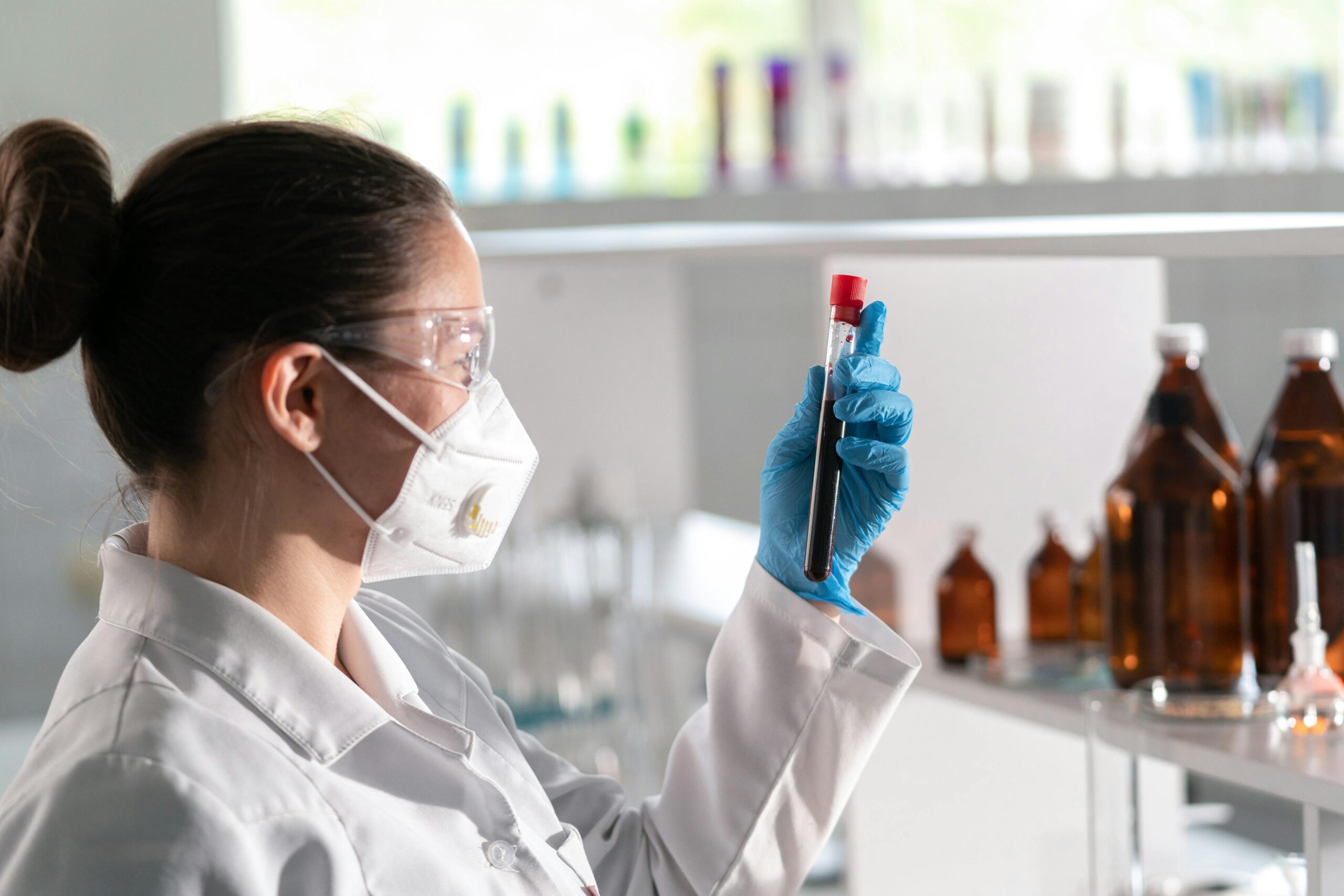Where to Study Forensic Science: 10 Colleges That Stand Out
July 16, 2025 :: Admissionado
So You Wanna Be a Forensic Scientist?
You’ve binged CSI, Mindhunter, maybe even Bones. The glamor? Intriguing. The science? Even better. And now you’re wondering, “Wait—how do I actually become one of those people?”
Let’s start by popping the bubble: real forensic science isn’t dramatic lighting and last-minute confessions. It’s methodical, meticulous, and very, very science-y. Think more pipettes and lab reports, less sunglasses and one-liners.
Still, it’s an incredible field. At its core, forensic science is about truth—using hard evidence to cut through chaos. In a world where opinions often outshout facts, forensic scientists deal in the undeniable. That makes them indispensable. Courts rely on them. Investigations hinge on them. Justice, in many cases, needs them to function.
And this need? It’s only growing. With tech advancing and digital crime on the rise, forensic expertise isn’t a nice-to-have—it’s essential. From cold cases to cybercrime, the demand for sharp, science-minded professionals isn’t slowing down anytime soon.
So, how do you get from Netflix obsession to actual expert?
That’s where we come in. In this guide, we’ll break down what forensic science really looks like, what kind of work you’ll do, and—crucially—how to choose the right college program. Because not all schools are created equal, and picking the right one can make a massive difference in where you end up.
Spoiler: It’s not just about fancy labs and “prestige.” It’s about finding a program that gets forensic science right. Let’s dig in.
Forensic Science 101 – What It Is and What You’ll Actually Do
Let’s start with the basics: forensic science is the application of science to the law. Translation? You’re using science—real, empirical, test-it-twice science—to solve crimes and make sure justice actually makes sense. Less Perry Mason theatrics, more pipettes and peer review.
But “forensic science” is an umbrella term. Underneath it, there’s a buffet of specialties, each with its own brand of “cool meets clinical.” Let’s break it down:
Forensic Biology – This is the DNA stuff. The blood drops on the floor. The hairs on the sweater. The “we found skin cells under the victim’s nails” kind of analysis. You’ll work with genetic material to place people at crime scenes—or eliminate them from suspicion. Also: blood spatter analysis. Less Jackson Pollock, more physics-meets-biology with a side of crime scene geometry.
Forensic Chemistry – If you’re into toxicology (think poisons, drugs, chemical compounds), this is your lane. This is the team identifying substances—narcotics, explosives, mystery powders found in glove compartments. It’s high-stakes chemistry, minus the high school volcano projects.
Digital Forensics – Welcome to the world of cybercrime. If you’re more hoodie-and-laptop than lab coat-and-Bunsen burner, this is your zone. You’ll trace IP addresses, recover deleted files, and crack into corrupted hard drives. Think of it as CSI meets IT support, with a dash of hacker-hunting thrown in.
Forensic Anthropology & Entomology – Okay, it’s about to get gritty. This is bones, bodies, and bugs. Anthropologists work with skeletal remains to determine identity, cause of death, and even how long someone’s been… not alive. Entomologists study insect activity to do the same. If you can stomach decomposition charts before breakfast, welcome aboard.
So what does a forensic scientist actually do all day? A lot of lab work, for starters. You’ll analyze samples, write reports, testify in court (yup, you might get cross-examined), and occasionally hit the field to collect evidence. It’s meticulous, methodical, and absolutely not for the easily bored.
Your academic path? Most start with a bachelor’s in chemistry or biology. Some schools offer actual forensic science majors (which we’ll get to), but the real magic often happens in grad school. That’s where specialization gets serious.
Skills that matter? Eagle-eyed attention to detail. A love of the scientific method. The ability to explain complex ideas in plain English (because juries don’t have PhDs). And yeah… you’ll need a bit of a stomach for grim stuff. This isn’t The Great British Bake Off. It’s closer to True Detective—with better lighting and more microscopes.
Curious to explore real-world resources? Start with the American Academy of Forensic Sciences (AAFS). They’re the real deal.
What to Look for in a Forensic Science Program
Before you fall for the shiny brochures and campus crime lab Instagram reels, let’s talk substance. A forensic science program can look impressive but still leave you underprepared for the realities of the field. So how do you separate CSI cosplay from career-launching training?
Start with FEPAC accreditation. That’s the Forensic Science Education Programs Accreditation Commission, the gold standard for undergrad forensic programs. If a school has it, that means its curriculum, faculty, and resources meet strict industry standards. In short? It’s legit. If it doesn’t? Doesn’t mean it’s bad—but you’ll need to dig deeper to assess its chops.
Now let’s break down what else matters:
- Hands-on learning in crime labs – Whether it’s an on-campus simulation lab or access to a real one, you’ll need more than just theory. Forensic science is all about practice. Programs that offer lab access early and often? Huge win.
- Faculty with real-world creds – You want professors who aren’t just teaching from textbooks. Have they worked cases? Published in forensic journals? Served as consultants? If they’re still active in the field, that means they’re bringing up-to-the-minute insights straight into your classroom.
- Internships with law enforcement or M.E. offices – Classroom learning is one thing. But actual casework? That’s where the magic happens. Look for schools with strong pipelines to places where real evidence gets processed—police departments, coroner’s offices, private labs. Bonus points if the internship is built into the curriculum.
- A curriculum grounded in hard science – You’ll need chemistry. Biology. Physics. Plus stats, criminal law, and ethics. If a program skimps on the natural sciences in favor of procedural fluff? Red flag.
- Cross-disciplinary muscle – Forensic science lives at the intersection of science and law. A program that connects dots between criminal justice, psychology, biology, and chemistry will give you a serious edge in the real world.
- Graduate outcomes that mean something – Where do alumni end up? If they’re landing roles in state or federal crime labs, forensic units, or private-sector firms, that’s a good sign the program is setting grads up for success.
Need more tools in your research toolbox? Bookmark these:
- American Academy of Forensic Sciences (AAFS)
- ASCLD – American Society of Crime Lab Directors
- FEPAC – Forensic Science Education Programs Accreditation Commission
These organizations offer school lists, career resources, and serious insight into what real forensic training looks like. Use them.
The List: 10 Heavy Hitter Schools for Forensic Science
Penn State University
If you’re looking for a forensic science program with legit credibility and serious depth, Penn State should be high on your list. It’s FEPAC-accredited, which gives it a major stamp of approval right out of the gate. But beyond the credential, it’s the program’s structure—science-first, hands-on, and highly adaptable—that makes it stand out.
The curriculum is grounded in biology and chemistry, giving you a solid foundation in the hard sciences before diving into forensic-specific applications. You won’t just read about blood analysis or trace evidence—you’ll actually do the work, in labs designed to replicate real-world conditions.
Here’s what sets Penn State apart:
- FEPAC accreditation ensures the program meets national forensic science education standards.
- Dual tracks in forensic biology and forensic chemistry let you specialize without sacrificing scientific depth.
- Access to high-tech lab facilities, including instrumentation you’ll actually see in professional crime labs.
- Faculty-led research offers early exposure to real investigations and publishable projects.
- Well-developed internship connections with local, state, and federal agencies open doors to competitive experience.
Whether you’re aiming for grad school, federal agency work, or a state crime lab job, Penn State builds the skills—and resume—you’ll need to get there.
University of Central Florida (UCF)
UCF isn’t just big—it’s bold when it comes to forensic science. As one of the few schools offering both a B.S. and M.S. in forensic science, UCF gives students room to grow without switching institutions. Located in Orlando, the program has direct proximity to active crime labs, medical examiner offices, and private forensic firms—translation: internship gold.
The program is rooted in chemistry and biology but also leans into forensic-specific methodology early on. Whether you’re into toxicology, serology, or crime scene analysis, UCF provides a clear runway.
Highlights include:
- Dual degree options (BS + MS) make it easy to continue your training without skipping a beat.
- Strategic location puts students near forensic employers and government agencies for internships and job shadowing.
- Specialized labs and facilities, including access to crime scene houses and instrumentation suites.
- Faculty with field experience, including collaborations with Florida law enforcement.
- Strong alumni network in both the public and private forensic sectors.
UCF is ideal for students who want a high-tech, experience-heavy education with a clear path to specialization.
West Virginia University
WVU was one of the first major universities to go all-in on forensic science—and it shows. Its program is built around real-world training, including a full-scale Crime Scene Complex where students work on staged investigations that feel anything but staged.
Students choose between forensic biology and forensic chemistry tracks, each bolstered by extensive lab work, research, and close faculty mentorship. This is a place where you don’t just study forensics—you practice it.
Why WVU stands out:
- Home to the Crime Scene Complex, a mock crime scene village designed for hands-on training.
- FEPAC-accredited, with rigorous academic standards across both biology and chemistry concentrations.
- Renowned faculty, particularly in forensic chemistry and DNA analysis.
- Embedded research culture, including collaborations with federal and state crime agencies.
- Graduate placement strength, especially within government and lab-based careers.
If you want to hit the ground running with both theory and practice, WVU gives you a serious head start.
Texas A&M University
At Texas A&M, forensic science isn’t just an offshoot of another department—it’s its own major: Forensic and Investigative Sciences. That alone signals something important. This program doesn’t treat forensics as a side hustle. It’s the main event. With a heavy emphasis on biological and chemical evidence, especially DNA and trace materials, A&M blends rigorous science with high-stakes application.
The curriculum is built to prepare students for both lab and field work, while maintaining strong ties to law enforcement and agricultural investigative units (this is Texas, after all).
Program highlights:
- Dedicated forensic science major, not just a concentration.
- Dual tracks in science emphasis or pre-law, depending on your career path.
- Cutting-edge instruction in DNA analysis, trace evidence, and toxicology.
- Research and faculty mentorship, particularly in forensic biology and entomology.
- Strong job placement into government agencies and grad programs.
For students who want a serious, research-forward program with real-world stakes, Texas A&M delivers clarity and clout.
University of New Haven
UNH is often considered the gold standard for hands-on forensic science training—and it wears that title well. The program boasts multiple dedicated forensic labs, mock crime scene facilities, and instructors with decades of field experience. It’s built for students who want to jump into applied learning from the jump.
You won’t be stuck in lectures for long. From blood spatter rooms to forensic photography workshops, the experiential learning here is off the charts.
Why New Haven makes the list:
- Full suite of forensic science facilities, including mock crime scenes and digital forensics labs.
- Strong industry connections, especially with law enforcement in the Northeast.
- Faculty with professional pedigrees, many of whom are still active in investigations and court consultations.
- Pipeline to grad school and employment, with job-ready skills built into the curriculum.
- One of the most comprehensive undergrad programs in the country.
If you’re the type who learns best by doing—and wants a program built around doing—UNH is a slam dunk.
Michigan State University
MSU has long been a heavyweight in the forensic world, especially in forensic anthropology and criminal justice. If your interests lean toward the human element—skeletal analysis, cultural context, or the intersection of science and justice—this is your playground. It’s one of the few schools where the integration of hard science and social science feels natural, not forced.
Students benefit from access to world-class faculty, deep research resources, and a curriculum that doesn’t just prep you for the lab—but for the courtroom and beyond.
Key strengths:
- Specialized strength in forensic anthropology, ideal for students focused on human remains and identification.
- Top-tier criminal justice program that blends seamlessly with forensic coursework.
- Robust faculty research, with opportunities for student collaboration and publication.
- Access to labs and museum-quality specimen collections for hands-on training.
- Graduates land roles in academia, federal law enforcement, and global forensic efforts.
MSU is perfect for students who want to tackle forensic science with a broader, human-centered lens.
Loyola University Chicago
Loyola brings a liberal arts twist to forensic science—and it works. Don’t expect massive lecture halls or cookie-cutter lab assignments. Here, you’ll get small class sizes, a faculty that knows your name, and a curriculum that puts ethics, communication, and interdisciplinary fluency front and center.
Rooted in a strong chemistry department, Loyola’s program emphasizes both lab skills and moral clarity—an often overlooked but critical part of forensic work.
Why Loyola stands out:
- Liberal arts approach integrates ethics and humanities with scientific rigor.
- Well-respected chemistry program, providing a solid technical foundation.
- Emphasis on communication and critical thinking, essential for courtroom testimony and legal reporting.
- Opportunities for undergraduate research and faculty mentorship.
- Urban campus = internship access with Chicago-area labs and law enforcement.
For students who want a more holistic, thoughtful, and ethics-driven approach to forensic science, Loyola delivers depth in all the right places.
Eastern Kentucky University
Eastern Kentucky University might not be the loudest name in the field—but that’s exactly what makes it such a standout. This is one of the few schools with an entire department devoted solely to forensic science. Translation? You’re not competing for attention with bio majors or chemists. Forensics is the focus, full stop.
EKU blends rigorous classroom work with extensive practical experience, and its geographic location means deep ties to crime labs and law enforcement across the Southeast.
Why EKU deserves a closer look:
- Dedicated Department of Forensic Science, offering a specialized, immersive education.
- FEPAC-accredited, ensuring industry-aligned curriculum and training.
- Internship-rich environment, thanks to tight-knit relationships with regional agencies.
- Faculty with real-world forensic experience, including former lab professionals and consultants.
- Affordable public tuition, making high-quality training more accessible.
If you’re after a focused, profession-ready education that doesn’t require a six-figure debt, EKU hits the sweet spot.
UC Davis
Here’s the twist—UC Davis doesn’t offer a forensic science major. So why is it on this list? Because it’s one of the best launchpads for future forensic specialists who want to build their science foundation before specializing in grad school.
With powerhouse departments in biology, chemistry, entomology, and anthropology, Davis quietly creates some of the most technically skilled forensic scientists in the game. And if you’ve got an interest in the bugs, bones, or bio behind the crime scene, this is your place.
Strengths worth noting:
- World-renowned programs in entomology, anthropology, and biology—key forensic subfields.
- Heavy research opportunities, with strong faculty mentorship and access to top-tier labs.
- The path to grad school is clear and well-supported.
- Cross-disciplinary flexibility, ideal for students with niche interests (think: forensic entomology meets data science).
- The California location offers exposure to both public and private sector internships.
For students willing to play the long game—build the science now, specialize later—UC Davis is a stealth powerhouse.
Final Thoughts – Your Forensic Future Starts Here
Forensic science isn’t just a major—it’s a mission. It’s for the truth-hungry, detail-obsessed, lab-loving future pros who want to bring science into the service of justice. And the right undergraduate program? That’s your launchpad.
But let’s keep it real: undergrad is the start, not the finish line. Most forensic scientists continue on to grad school, certifications, or agency-specific training. Your bachelor’s should give you two things: a rock-solid science foundation and the momentum to go deeper. If a school doesn’t offer that? Keep walking.
Also, can we retire the prestige chase for a sec? This field isn’t about brand names—it’s about fit. You need hands-on labs, mentors who’ve been in the field, and a program that makes you want to show up and dig into the messy, gritty, high-stakes work of forensic investigation. The flashiest school isn’t always the one that’ll best prepare you to testify under oath or analyze DNA at 2 a.m.
Here’s the good news: the world needs you. Forensic science isn’t a trend—it’s a vital, growing force in criminal justice, cybersecurity, environmental investigation, and more. We need sharp minds who can sift through noise and find the truth. So why not you?
Ready to make your list of forensic science schools smarter, tighter, and more strategic?
Book a free consultation with Admissionado. We’ll help you build your case for admission—no fingerprints required.



